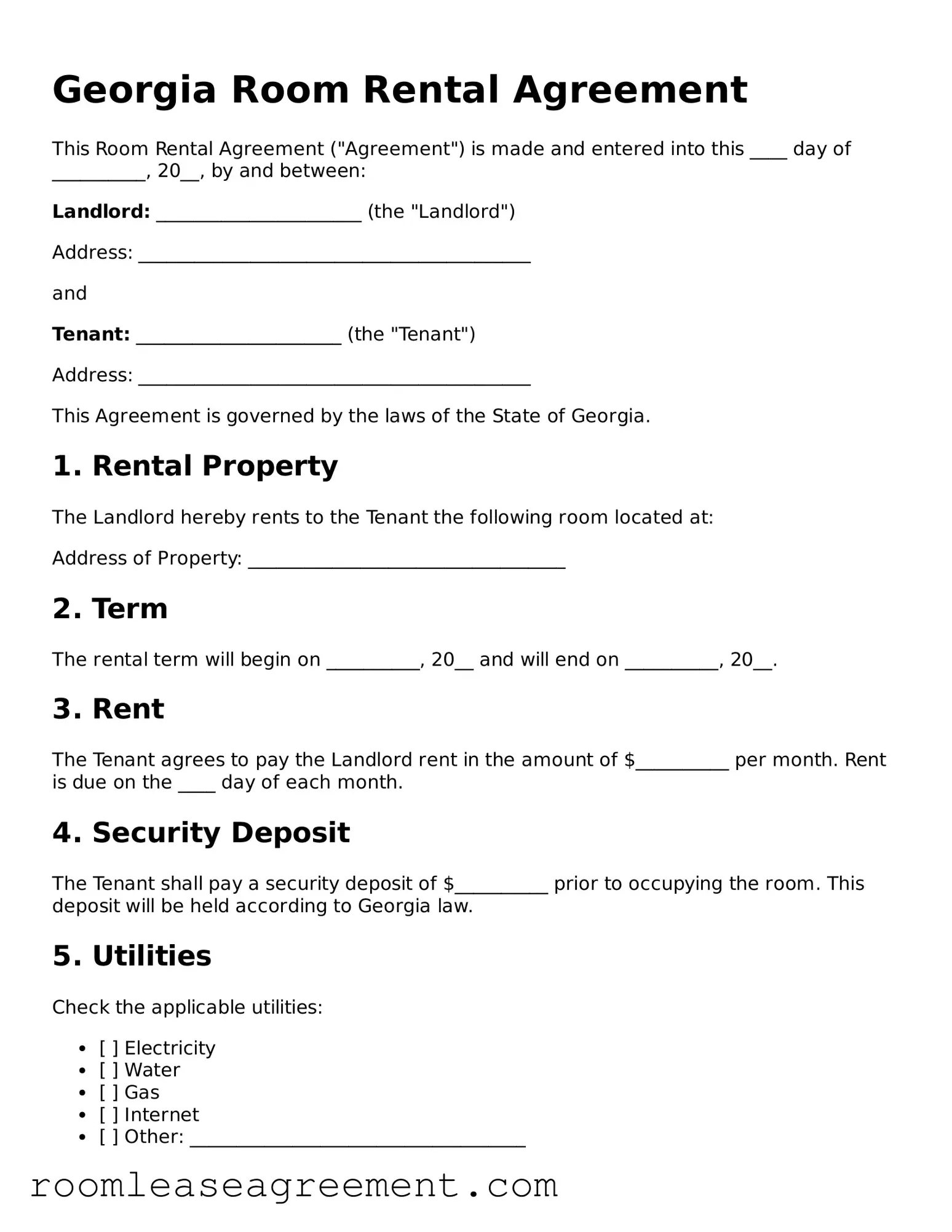Georgia Room Rental Agreement
This Room Rental Agreement ("Agreement") is made and entered into this ____ day of __________, 20__, by and between:
Landlord: ______________________ (the "Landlord")
Address: __________________________________________
and
Tenant: ______________________ (the "Tenant")
Address: __________________________________________
This Agreement is governed by the laws of the State of Georgia.
1. Rental Property
The Landlord hereby rents to the Tenant the following room located at:
Address of Property: __________________________________
2. Term
The rental term will begin on __________, 20__ and will end on __________, 20__.
3. Rent
The Tenant agrees to pay the Landlord rent in the amount of $__________ per month. Rent is due on the ____ day of each month.
4. Security Deposit
The Tenant shall pay a security deposit of $__________ prior to occupying the room. This deposit will be held according to Georgia law.
5. Utilities
Check the applicable utilities:
- [ ] Electricity
- [ ] Water
- [ ] Gas
- [ ] Internet
- [ ] Other: ____________________________________
6. Maintenance and Repairs
The Tenant agrees to maintain the room in good condition. The Landlord will be responsible for repairs unless damage is caused by the Tenant's negligence.
7. Termination
Either party may terminate this Agreement by providing written notice at least ____ days in advance.
8. Governing Law
This Agreement is governed by the laws of the State of Georgia. Any disputes arising under this Agreement shall be resolved in accordance with those laws.
9. Signatures
By signing below, both parties agree to the terms and conditions outlined in this Agreement.
Landlord Signature: _____________________________ Date: ________________
Tenant Signature: _____________________________ Date: ________________
